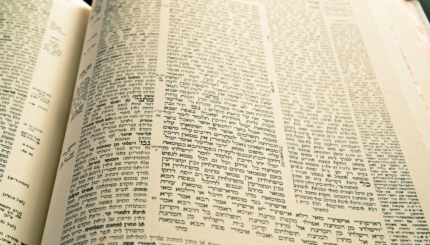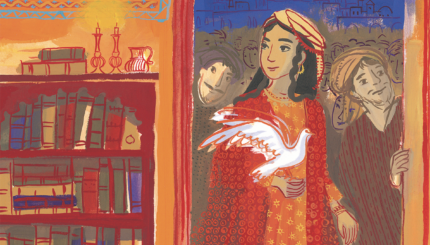Recently, the Ritual Committee of my congregation, Kehillat Yedidya in Jerusalem, asked its members whether we might occasionally allow
Kabbalat Shabbat
to be led by a woman. The question, spurred by requests from the daughters of several members and raised at a specially convened and very well-attended Seudah Shelishit before Rosh Hashanah, has set off a lively debate in the community, at times bordering on acrimonious.
People have threatened to leave the community if this change is adopted, or suggested that those in favor of it go elsewhere if that is what they want to do. Even the left–right political debates that have occasionally wracked our community have rarely been so divisive. Where it comes to politics, people want the other side to shut up; Where it comes to the debate over Kabbalat Shabbat, they want them to leave.
In a community like ours that pioneered the lengthwise partition and the customs of passing the
through the women’s section, women dancing with the Torah on the holiday of
Simhat Torah
, women’s Torah readings, women standing before the whole community to give
divrei Torah
and read the Megillot, and girls singing Shirat Hakavod, why is this particular question so divisive?
Some see the proposed change, which halakhic authorities respected by and within our community insist is no more halakhically problematic than the others, as another step in realizing the ideals of Yedidya’s founding generation; others see it as a step over a line in the sand separating Orthodox Judaism from the rest. Why do some feel that this innovation is what will push us out of the Orthodox world – and why do they care so much about it? Why do some of the very members who participate enthusiastically in some of the above practices, or have even initiated them personally, feel that having women lead Kabbalat Shabbat goes beyond their comfort zone?
Some of our members come from strictly Orthodox backgrounds and have moved in a more liberal direction; others started from non-Orthodox or even secular backgrounds and were drawn to Orthodox ritual and practice. All, it seems, rally to the cry of “We do not want to be (considered) Conservative!” There’s something about egalitarian services that rankles and debilitates, that does not feel “like us.” For a significant proportion of our members, men and women alike, a woman head of the community (we’ve had many) or a woman standing before the is acceptable, while a woman leading a service (or having an to the Torah – a proposal debated and rejected several years ago), even a non-obligatory one, is not.
For me, it’s interesting that the debate over this issue seems to turn on the questions of whether having women lead Kabbalat Shabbat “feels right” to people, and of whether the community will still “look Orthodox” if we make this change.
After all, what is Orthodoxy these days? Can we even speak of one movement, when it contains communities whose members wouldn’t set foot in our on account of the above practices, and (a few) others for whom Yedidya by now seems old-fashioned and set in its ways? And why does the debate center on what “feels good,” rather than on, say, what model might be best for our young people (who, you’ll recall, raised this issue in the first place), or how we’d like to see Jewish practice develop? Is this “feel-good” motivation (which to me smells a bit like supermarket Judaism) a generational thing, or maybe an Anglo-American one?
It’s still not clear how this question will be settled in Yedidya. Given the degree of opposition, it seems likely to me that the proposal will not pass where the main service is concerned, but a compromise suggestion of allowing occasional Kabbalat Shabbat services led by women in a downstairs hall seems to have some chance of acceptance. At any rate, the very terms in which our community is discussing this issue are revealing of the fault lines in the liberal, pro-feminist wing of Modern Orthodoxy today.
Is your community exploring the roles of women? Then come to the JOFA conference where you will meet like-minded folks from around the world discussing the same issues. Meet, connect, share experiences, hear from experts. The JOFA Conference is an unmissable event for people interested in changing roles of women in synagogue. Register today!



